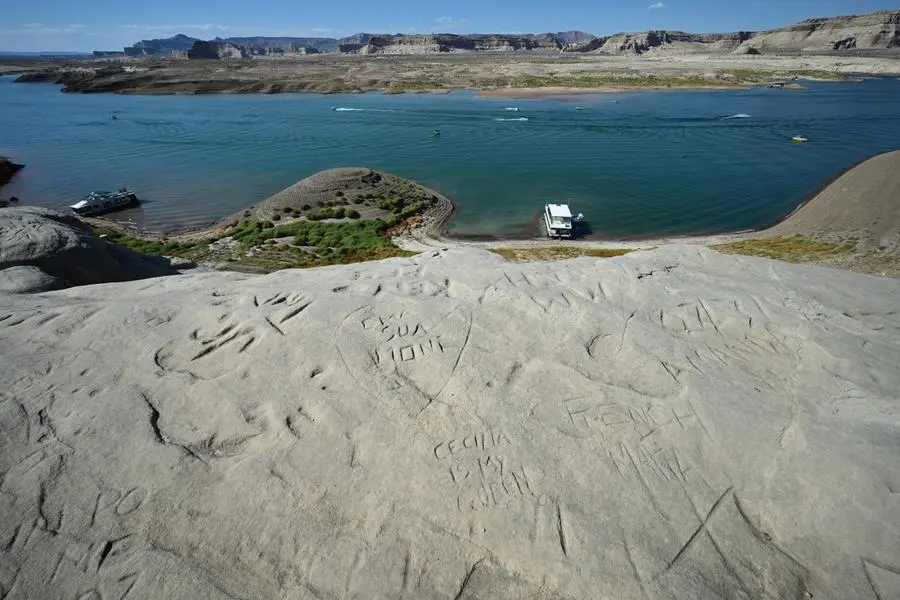PHOTO
Seven US states that rely on the Colorado River on Tuesday missed a federal government deadline to agree on reducing water consumption from a watercourse that has been overused for decades.
Arizona, California, Colorado, Nevada, New Mexico, Utah and Wyoming were given until January 31 to come up with a plan -- or face a solution imposed by Washington.
Reservoirs fed by the mighty river, which supplies water to tens of millions of people in the western United States, are perilously low after more than 20 years of drought.
Officials from six of the states submitted a "consensus-based" model on Monday to the Bureau of Reclamation, the government agency in charge of managing water resources, but California's absence from the agreement means the deadline was missed.
The brief text stipulates water consumption ceilings to "mitigate the risk of either Lake Powell or Lake Mead reaching dead pool."
Both reservoirs, fed by the Colorado River, have seen their levels plunge over the past two decades as a swinging drought grips the western United States.
"This modeling proposal is a key step in the ongoing dialogue among the Seven Basin States as we continue to seek a collaborative solution to stabilize the Colorado River system," said Tom Buschatzke, director of the Arizona Department of Water Resources.
The Colorado River rises in the Rocky Mountains and flows through Colorado, Utah, Arizona, Nevada, California and northern Mexico, where it empties into the Gulf of California.
It is fed primarily by snow accumulated at high altitude that gradually melts during the warmer months.
But declining precipitation and rising temperatures caused by humanity's unchecked burning of fossil fuels means less snow is melting faster.
That means less water reaches a river that is crucial to the great cities of the west like Las Vegas and Los Angeles, as well as to tens of thousands of acres (hectares) of farmland.
This is the second deadline missed by the states.
California, the most populous and with the largest crop acreage, faces the greatest pressure to reduce its demand.
"While many of the states have worked together to reach an agreement that works for everyone, California refuses to do its part, and in some parts of the state is using more water, not less," Arizona congressman Greg Stanton said Tuesday.
"The Bureau of Reclamation must take action on this consensus-driven proposal. We cannot wait any longer," Stanton added.
AFP approached California water authorities for a comment, but received no immediate reply.





















